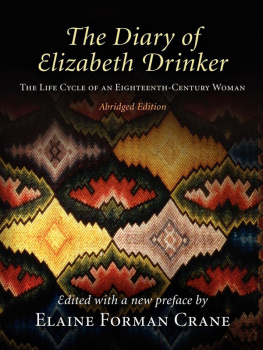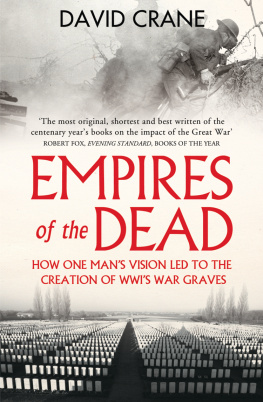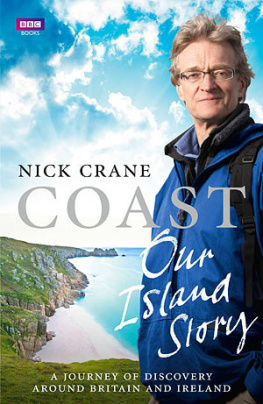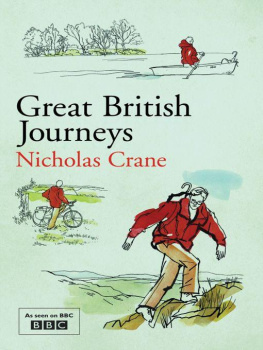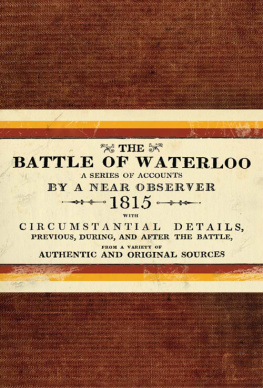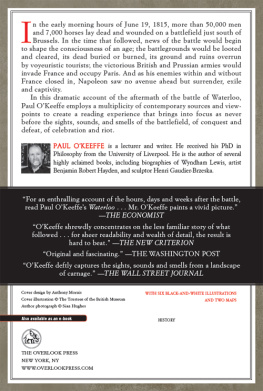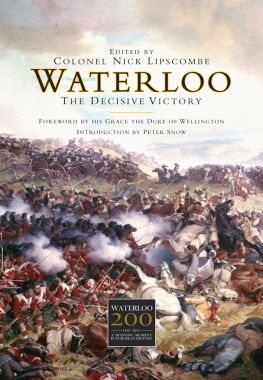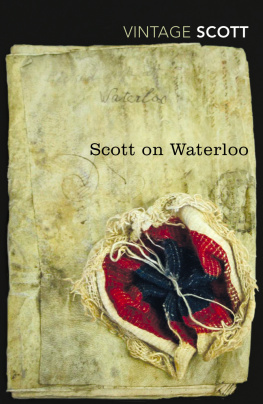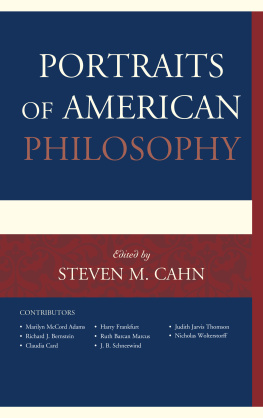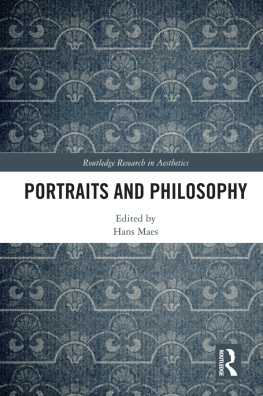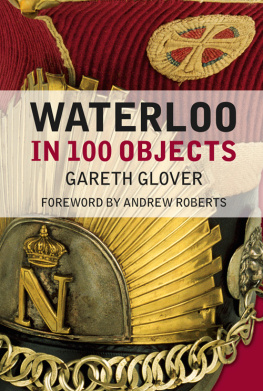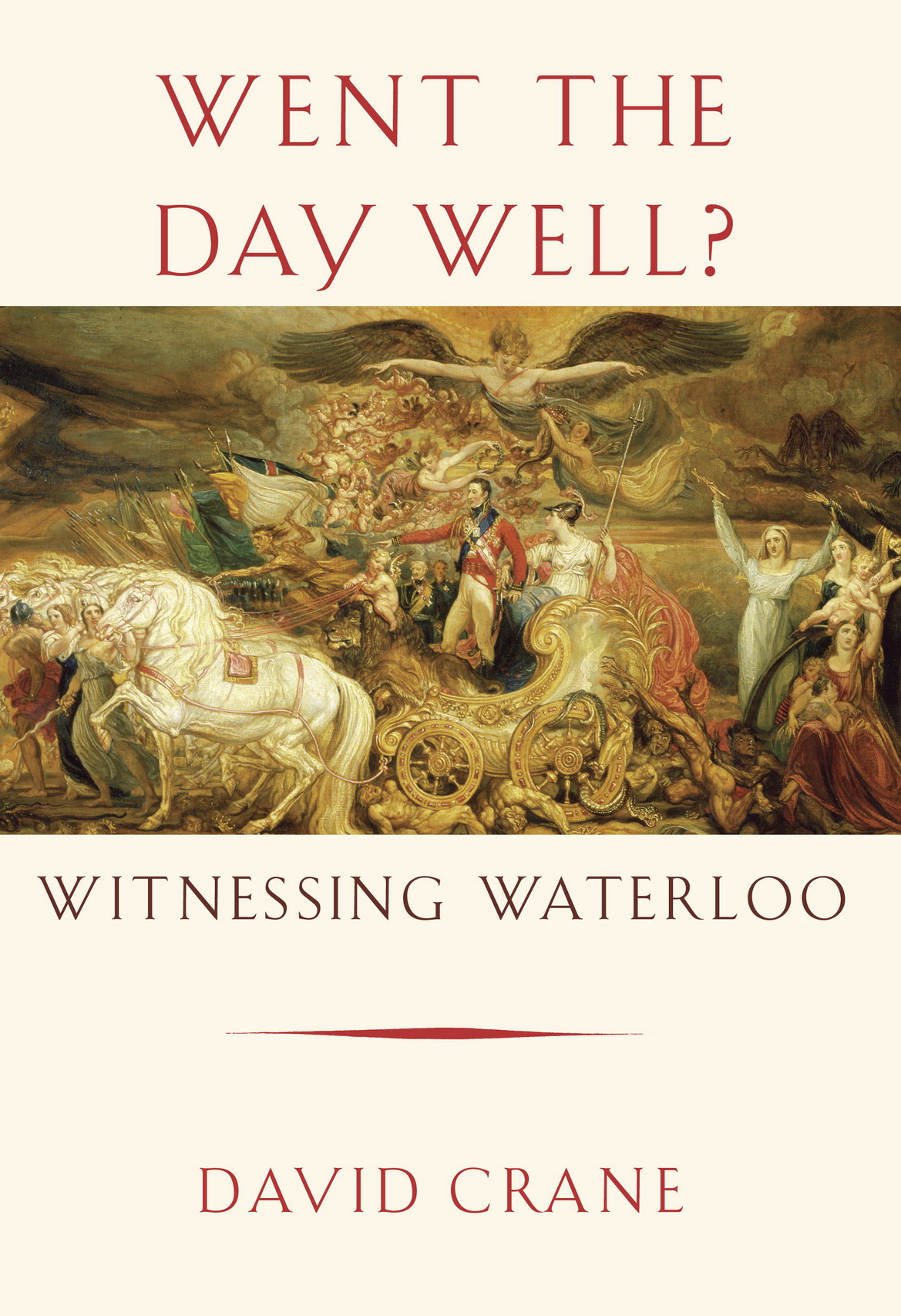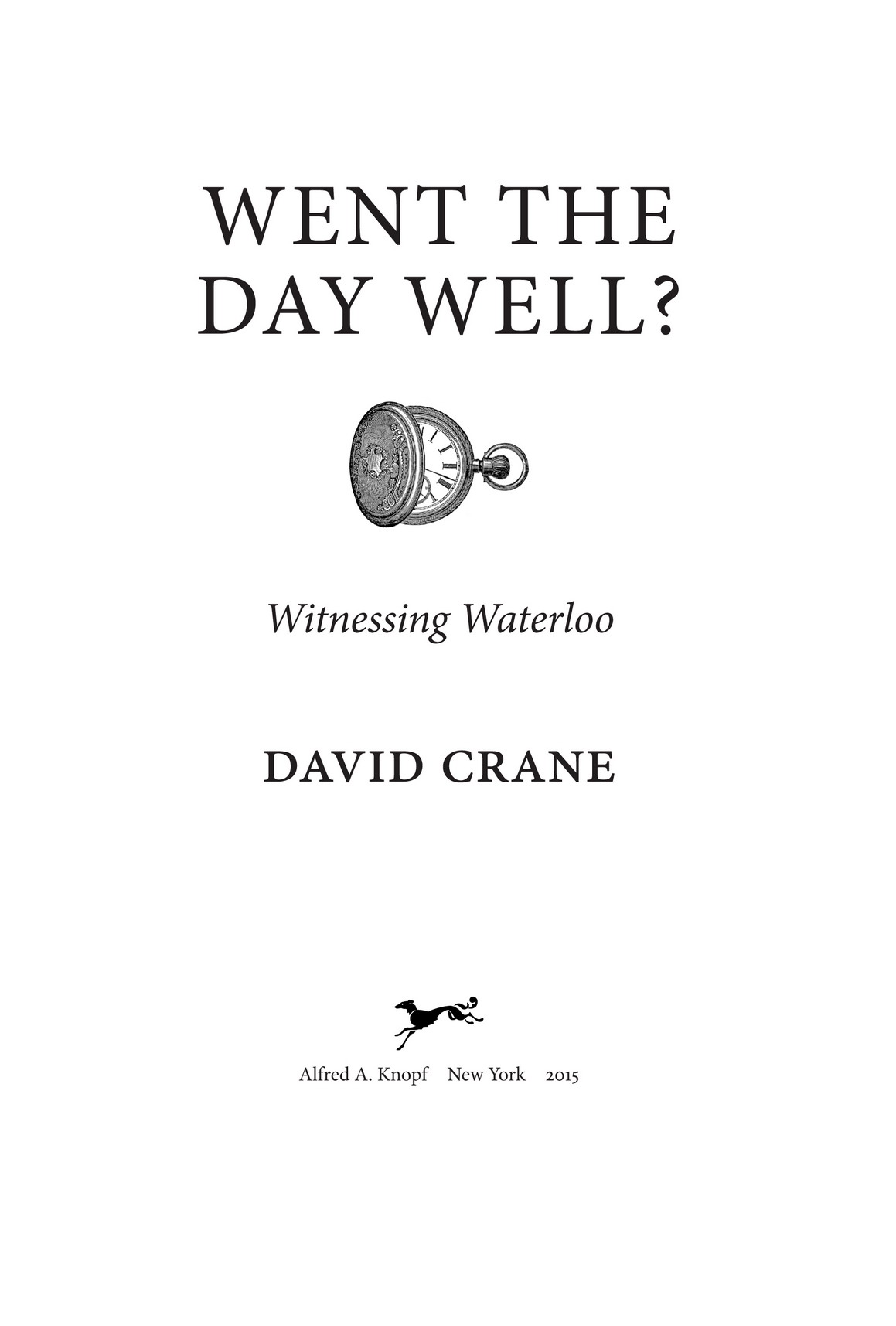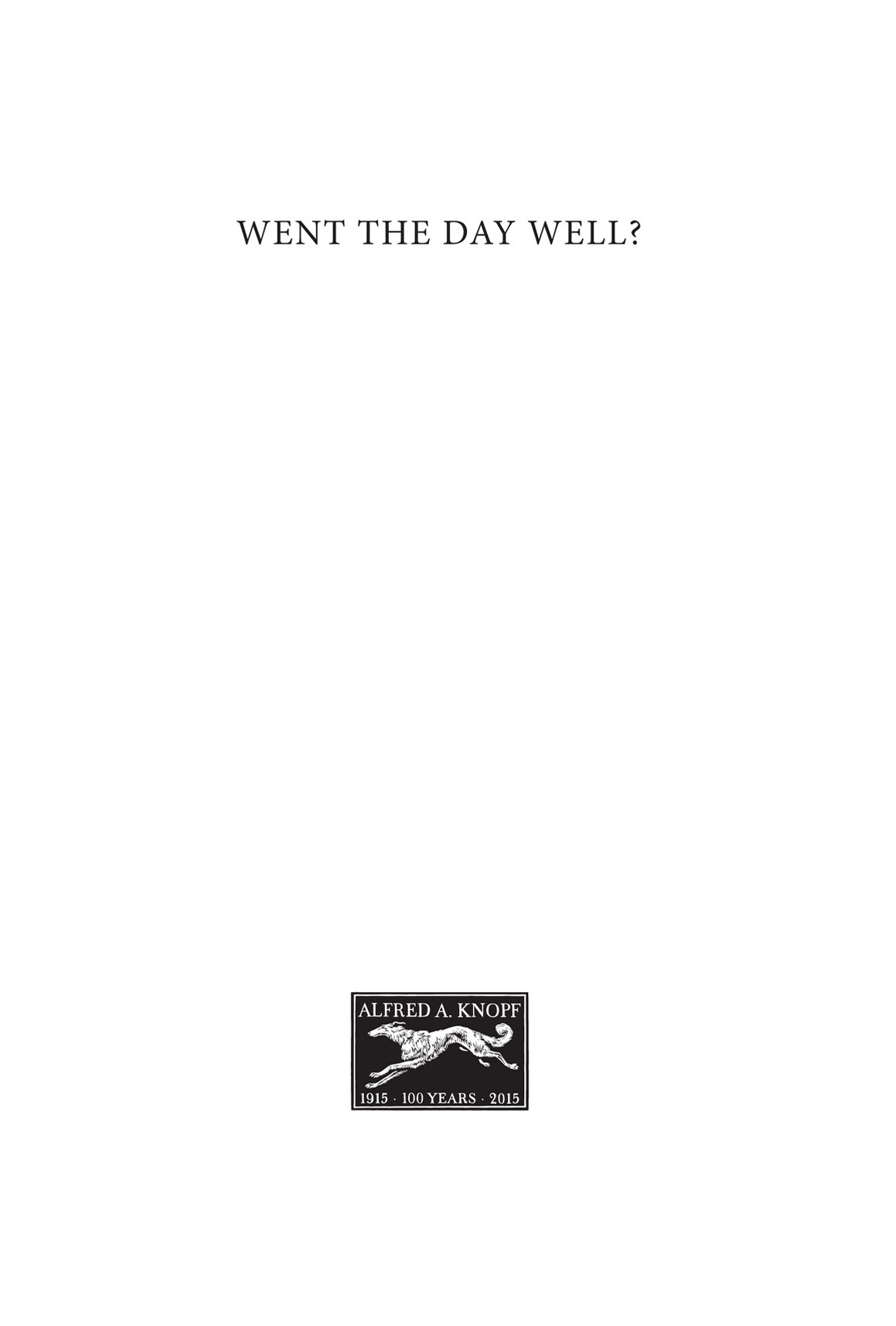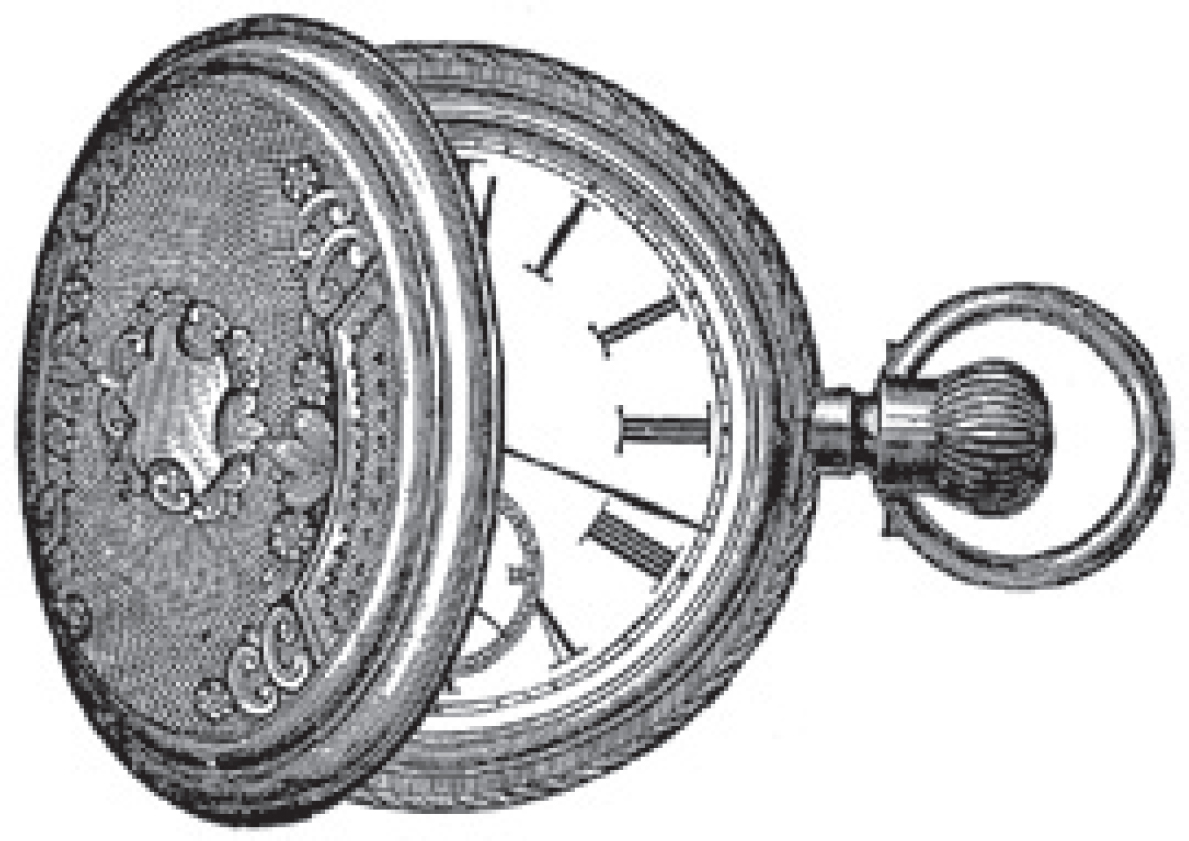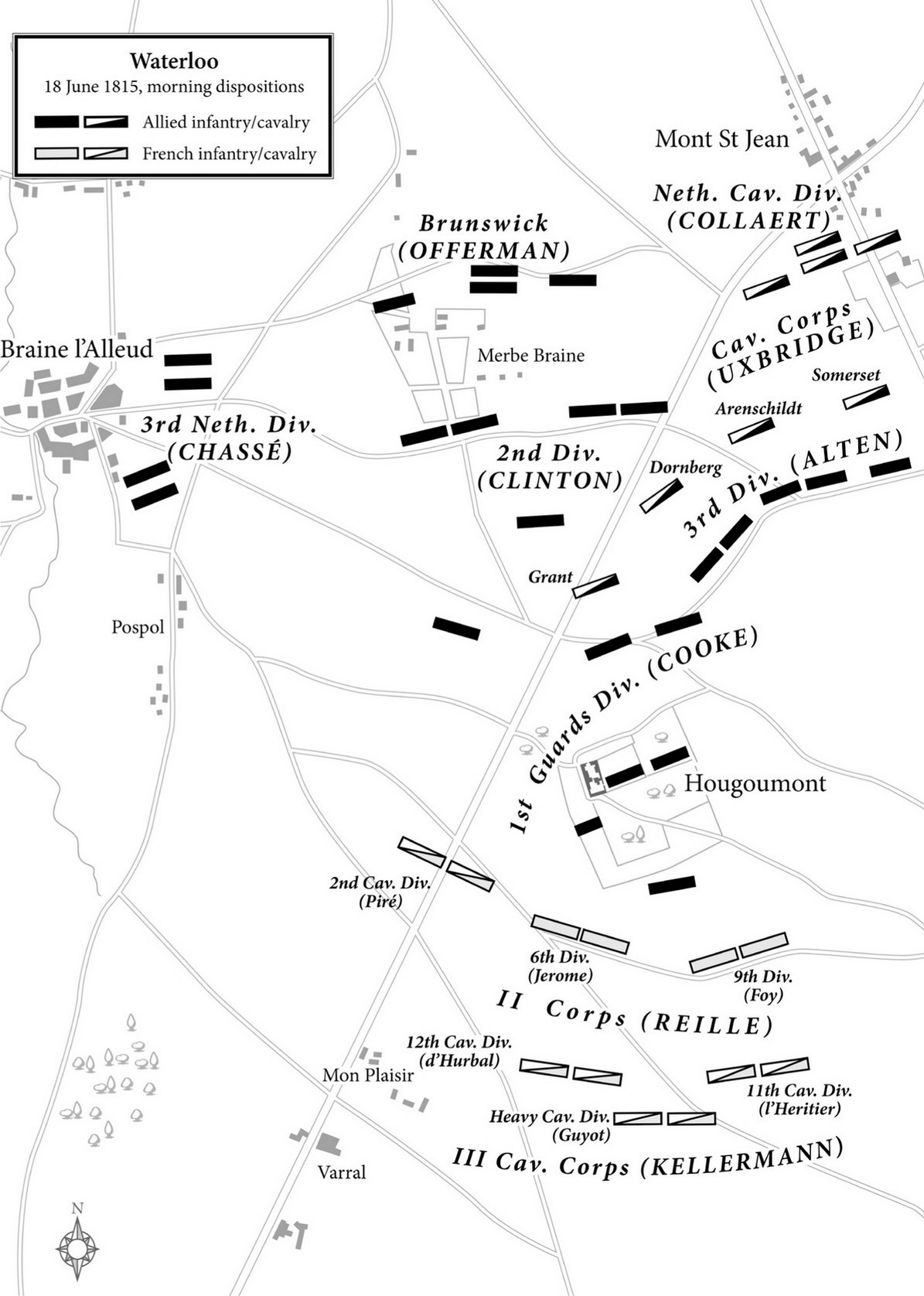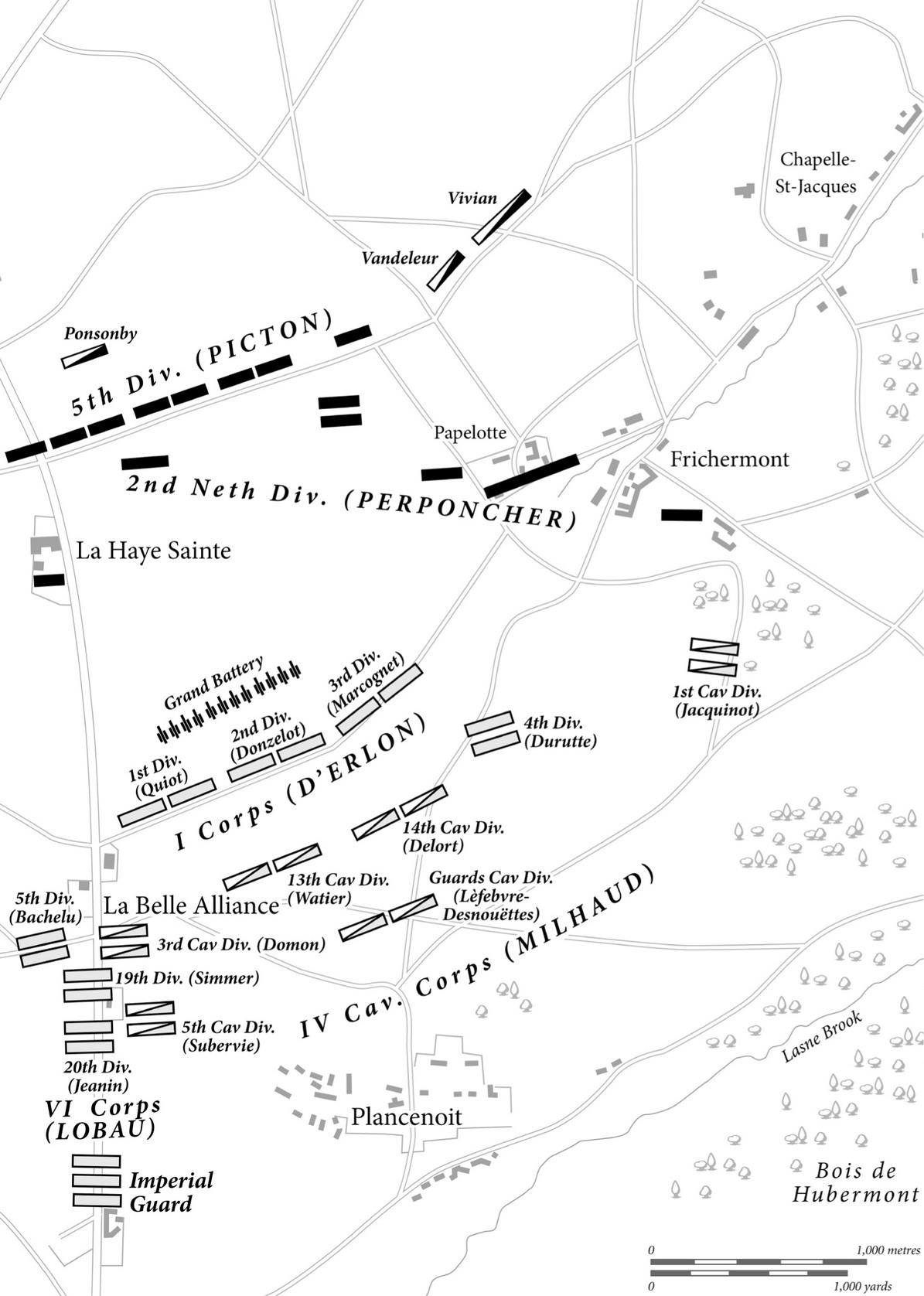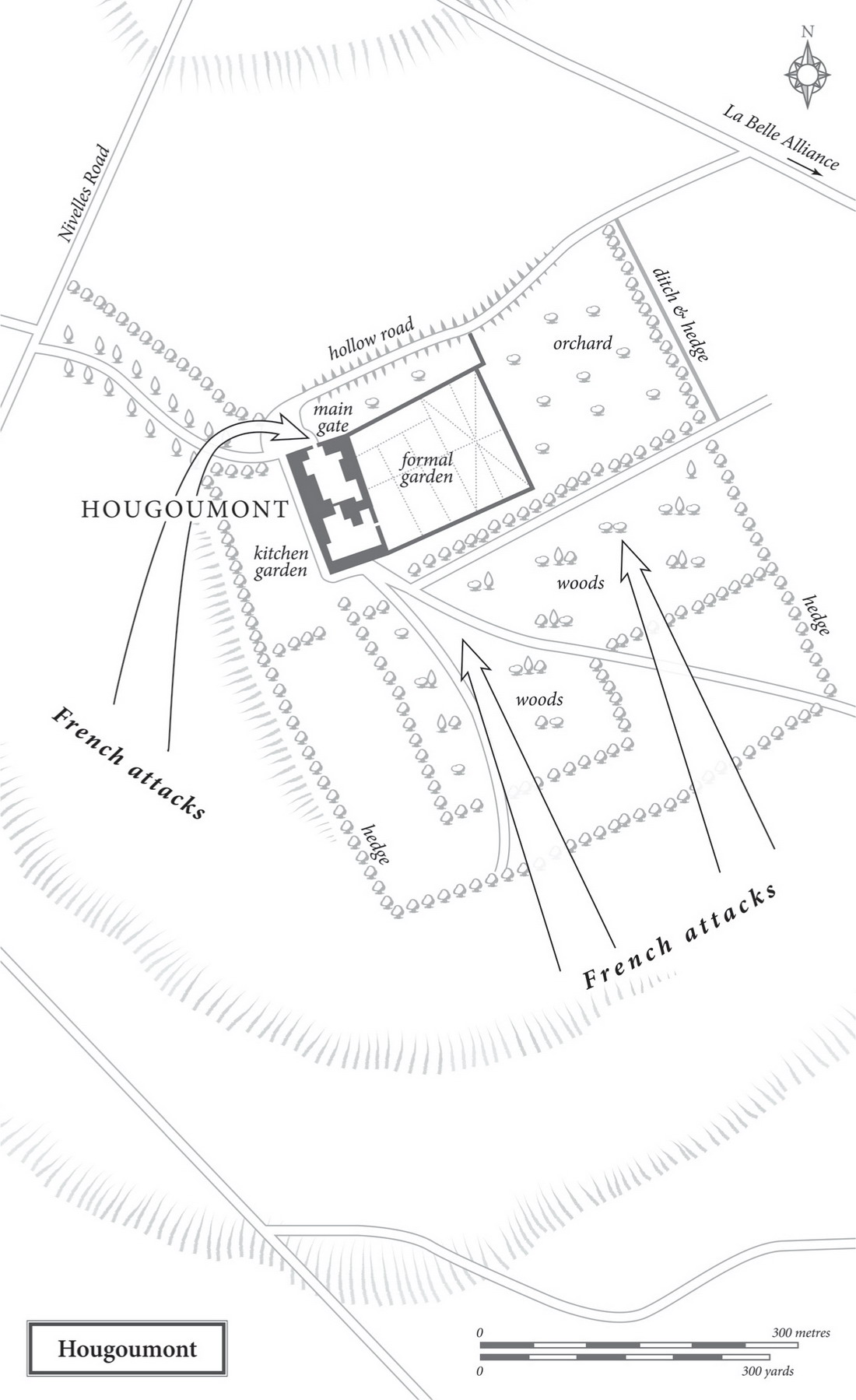Contents
THIS IS A BORZOI BOOK
PUBLISHED BY ALFRED A. KNOPF
Copyright 2015 by David Crane
All rights reserved. Published in the United States by Alfred A. Knopf, a division of Penguin Random House LLC, New York. Originally published in hardcover in Great Britain by William Collins, an imprint of HarperCollins Publishers, London.
www.aaknopf.com
Knopf, Borzoi Books, and the colophon are registered trademarks of Penguin Random House LLC.
Library of Congress Cataloging-in-Publication Data
Crane, David, [date]
Went the day well? : witnessing Waterloo / by David Crane.
pages cm
Includes bibliographical references.
ISBN 978-0-307-59492-1 (hardcover) ISBN 978-1-101-87463-9 (eBook)
1. Waterloo, Battle of, Waterloo, Belgium, 1815Personal narratives, British.
2. Waterloo, Battle of, Waterloo, Belgium, 1815Social aspectsEnglandSources.
3. War and societyEnglandHistory19th centurySources.
4. EnglandHistory, Military19th centurySources.
5. EnglandSocial conditions19th centurySources. I. Title.
DC 241.5. C 73 2015
940.2742dc23 2014044143
Cover image: The Triumph of Arthur, Duke of Wellington by James Ward Royal Hospital Chelsea, London, U.K./Bridgeman Images
Cover design by Carol Devine Carson
v4.1
a
ALSO BY DAVID CRANE
Empires of the Dead: How One Mans Vision Led to theCreation of WWIs War Graves
Men of War: The Changing Face of Heroism in the 19th-Century Navy
Scott of the Antarctic: A Life of Courage and Tragedy in the Extreme South
The Kindness of Sisters: Annabella Milbanke and theDestruction of the Byrons
Lord Byrons Jackal: A Life of Trelawny
Went the day well?
We died and never knew.
But, well or ill,
Freedom, we died for you.
John Maxwell Edmonds
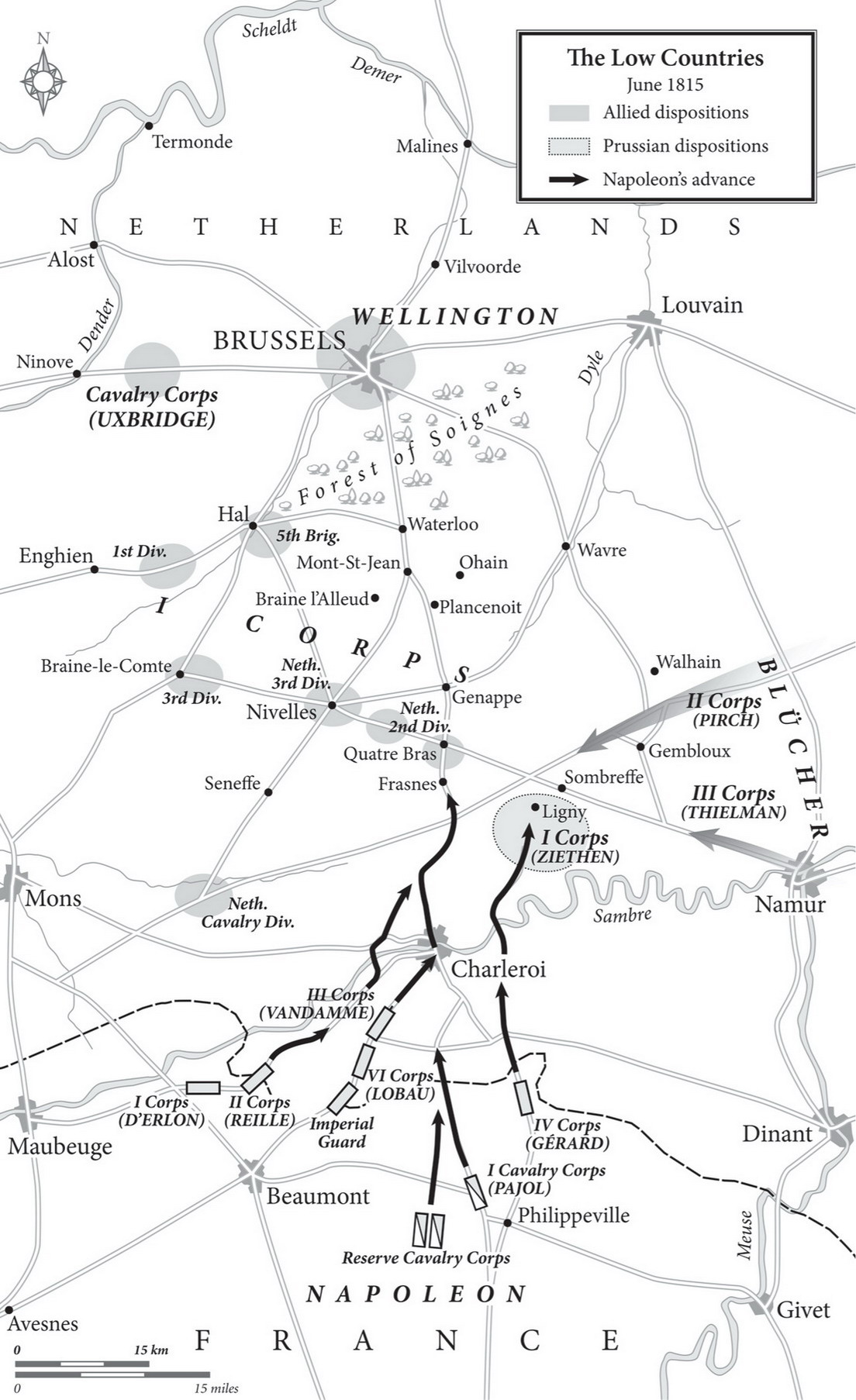

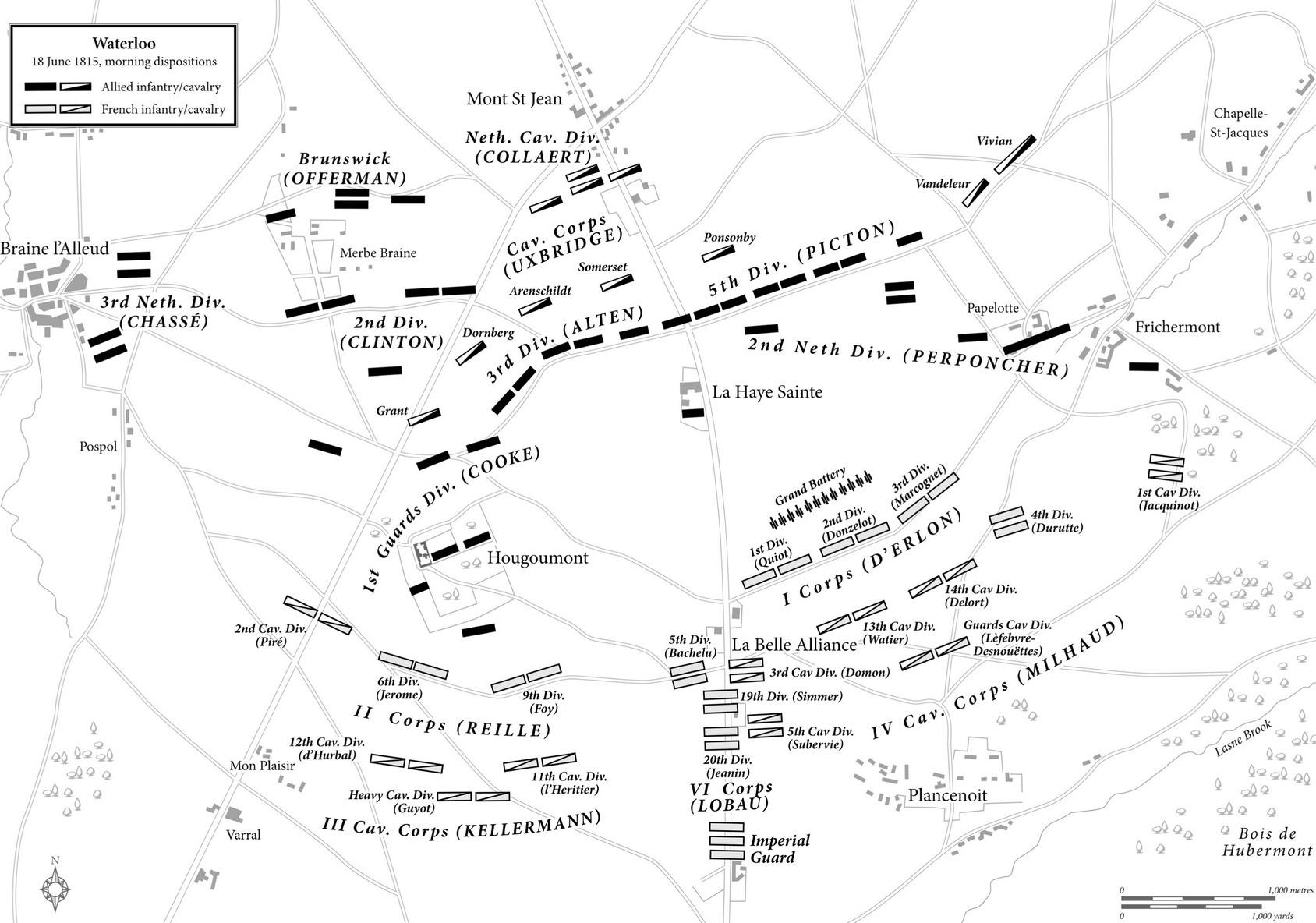

Detail left
Prologue
There exists a highly respectable school of liberal thought which does not deplore Waterloo. We are not of their number. To us Waterloo is the date of the confounding of liberty.
Victor Hugo, Les Misrables
O n any Sunday or holiday around the end of the Napoleonic Wars, the naval pensioners of Greenwich Hospital, dressed in their tricorn hats and blue uniforms, could be found under a tree near the Observatory in the Park, their telescopes set up, their old yarns of Trafalgar and the Nile primed for retelling, waiting for trade. From the summit of the hill on which they stood the view stretched northwards over the marshes towards Barking church and Epping Forest, and westwards across a forest of masts and docks to the London of Wren, St Pauls and Westminster Abbey.
It was a sight to make a foreigner quail at the trading might of a modern Tyre there might be more than two thousand ships lying in the Thames at any one time but for the Sunday holiday-makers who had made their way up Observatory Hill there was a more macabre demonstration of Britains naval power. For the last four hundred years crimes at sea had been punished with all the symbolic pomp the Admiralty could manage at Wappings Execution Dock, and for the price of a penny, the pensioners customers could hire a telescope and take their fill of the latest victims of naval justice, their bodies tarred and chained, and hanging in iron cages from a gibbet at the rivers edge as a warning against piracy.
On one such holiday in the early summer, while the hawthorn was still out and the great elms and chestnuts of Greenwich Park were looking their best, the humorist and poet Thomas Hood had paid his penny to see the sights and was sitting beneath the trees near the Observatory, watching the early-comers queue to take their turn. In almost every instance the first thing they asked to see were the men in chains across the river on the Isle of Dogs, but there was one exception a young woman he had watched climbing the hill on the arm of her husband, a swarthy-looking able-bodied seaman with a new hat on his Saracen-looking head, a handkerchief full of apples in his left hand, with a bottle neck sticking out of his jacket for a nosegay and it was this pair who caught Hoods attention.
When it came to their turn, the sailor asked one of the telescope-keepers to point out the men in chains for his good lady, but she told him that she wanted to see something else first.
Well! he wanted to know. What is it youd like better, you fool you?
Why. I wants to see our house in the court, with the flowerpots, and if I dont see that I wont see nothing. Whats the men in chains to


